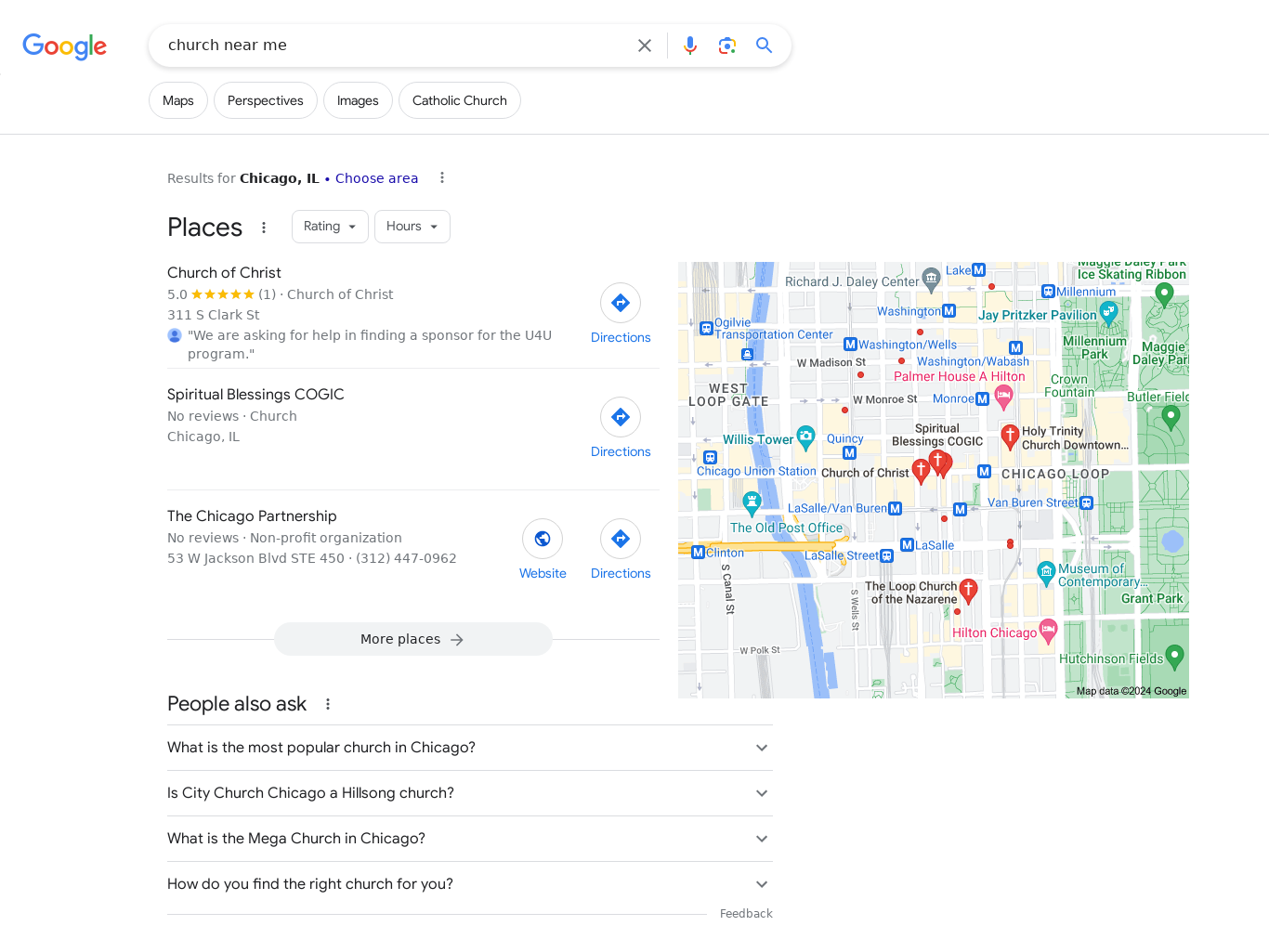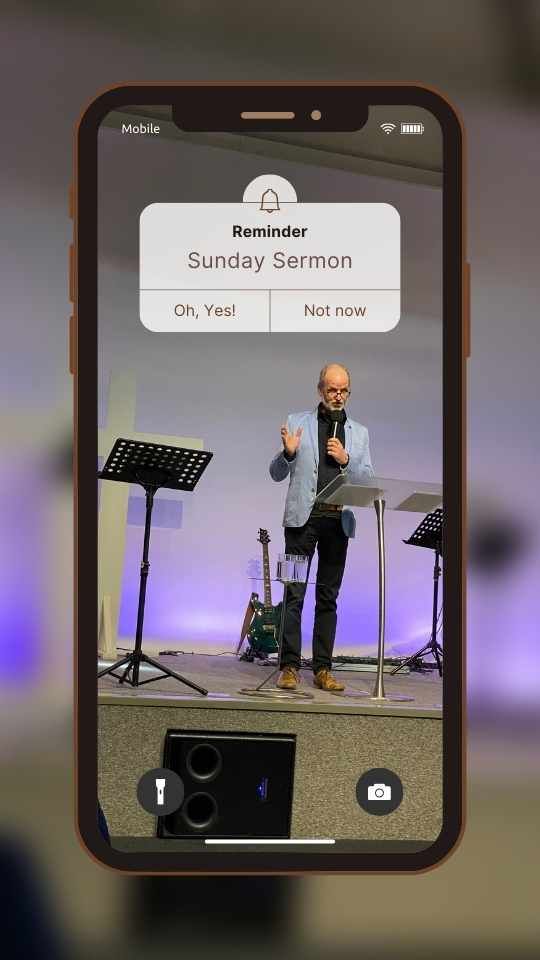Follow Us
10 Street Name, City Name
Country, Zip Code
555-555-5555
myemail@mailservice.com
Digital Marketing for Churches: 6 Proven Methods
We believe that digital marketing for churches is essential in today's world. It's not just about promoting events or services, but about reaching out to the local community with the message of hope and love. By using digital marketing strategies, local churches can connect with people in their neighborhoods, share biblical content, and invite them to be a part of a Christ-loving community.
From creating engaging social media content to optimizing their website for local searches, churches can use digital marketing to spread the Gospel of Christ and make a meaningful impact in people's lives. In this post, we hope to help churches improve their online visibility and reach their communities with the Gospel of Christ.
Here are 5 areas to start marketing your local church online.
1. Streamline your church website
Having a streamlined church website is the foundation for any type of digital marketing for churches. For every type of online outreach, you'll want to include a link back to your website. Your website can be simple and effective if it has the following information easily displayed. Here are 5 must-haves for a streamlined church website.
- Contact Information: Make sure your church name, street address, and phone number are prominently displayed on the website. Most visitors expect to find that information in the footer of a website, or on the contact page.
- Office Hours: Not everyone wants to visit a church during a service. In order to make it easier for people to come and ask questions or get a tour of the church, you'll want to provide office hours that are open to the public.
- Service Times: Of course, you will want to make sure people know when and where your services are held. Make sure you're clear about the time being AM or PM, and include the day of the week.
- Statement of Faith: Having a clear and concise statement of faith will help visitors know what your church believes. The Christian Apologetics and Research Ministry has advice on what to include in your Statement of Faith.
- Call to Action: It is important to extend an invitation to your church website visitors. By providing a clear call-to-action, you extend an invite for your visitors to engage with you.
Your website will work to represent your church online. The content written on every page will communicate to every person searching online for a local church. Tell the story of how Christ has impacted your local congregation, and invite others to experience enjoying Him. This is the essence of digitally marketing your church.
3. Use Google Business Profile
Even though it is called Google Business Profile, the free service is available for all types of organizations, include churches. The benefit of using Google Business Profile is to make sure people nearby, who use Google to search online, are able to find your local church on Google.
Isn't that what Church SEO is for? Yes, however, for searches on Google that have local intent, Google often presents nearby organizations who have a Google Business Profile setup first.
In the image below, you can see a Google search for the term 'church near me', and Google a Map Pack of three Google Business Profiles. Having your church setup with a profile will allow your church to appear like this for searchers in your proximity.

Setting up Google Business Profile for your church requires verification through a phone call or a postcard. To get started visit https://www.google.com/business/. Here are 5 tasks you'll want to complete on your church profile.
- Make sure all your contact information is accurate. Especially your street address, phone number, and website address.
- Upload photos of the church exterior and interior. Include photos showing the church sign, parking lot, street intersections, entryways, sanctuary, and offices.
- Regularly add updates and post events on your Google Business Profile. These updates will show up in Google searches and help keep people in-the-know with what the church is doing.
- Include office hours of the church, not just service times. Google provides guidelines on how to set your hours on your profile.
- Enable messaging and booking so visitors can engage with your church through Google. You can also add a scheduling link for people to schedule meetings with your Pastors or Elders.
Once your church's Google Business Profile is setup, you can maintain it by posting regularly, responding to online reviews, and add new photos and videos.
4. Build backlinks online
In order for your church website and Google Business Profile to rank higher in search results, you will need to build links back to your church website. Let's explain further why building backlinks is key to digital marketing for churches.
What are backlinks?
Backlinks have to do with the HTML or Hyper Text Markup Language that websites are built from. A hyperlink is an HTML element that allows you to link one element to another. It is a core function of the web and one of the main benefits of web pages.
Why are backlinks important?
Backlinks are important because they provide an easy way to connect one web page to another. This is great for web page visitors who can click on a link and be quickly taken to the link's destination. In the same way, search engines will read and follow those links in order to discover new content on the internet.
Another reason why backlinks are so important is because they are a signal that search engines use in order to rank web pages in their search results. How Google ranks search results is a very complicated recipe, but we know from their guidelines that links are a main ingredient.

How can our church build backlinks?
Here are five easy ways to build backlinks to your church website.
- Reach out to the town or city clerk and request that your church be listed on the town website under religious institutions or churches.
- Create social media accounts on various platforms. Of course there is Facebook, Instagram, and Twitter (X), but don't forget about LinkedIn, Pinterest, Quora, and Reddit.
- Make sure to build a profile on church specific directories like churchfinder.com, church.org, and 9marks.org. Each church directory has their own policies so make sure your church meets their requirements.
- Run local PR campaigns to announce upcoming events. Your local news outlet wants you to submit upcoming events that they can announce and cover.
- Contact local ministries, and colleges to add your church as a local place of worship. This is a common practice for colleges to provide students with local resources and for campus ministries to share.
Building these links to your church website will help you rank in local searches and allow for more people to discover your church online.
5. Send email newsletters
Having an email newsletter that you can send weekly will help keep your current members up to date on services, events, and other activities. It will also allow them an easy way to share that information with others by simply forwarding that email.
For those who are curious to learn more about the church, they can subscribe to your newsletter on your website. This gives them a weekly reminder of the service times, links to past sermons, and invitations to upcoming events. This is especially useful for members who may not be inclined to join social media, but prefer direct messages.
There are several email marketing tools for churches that are free for non-profits. Below are 5 ways to use email for digital marketing in your local church.
- Sending a weekly or monthly newsletter with reminders of upcoming events.
- Create emails with links and transcripts to past sermons.
- Remind members of ministry opportunities, meetings, and registrations for events.
- Alert people of inclement weather and service or event cancellations.
- Encourage people with scripture passages and short devotionals.
Adding an email newsletter to your church's digital marketing efforts will keep more people engaged and allow you to regularly communicate with your congregation.
6. Broadcast sermons online

Recording and uploading the sermons online will give your church weekly content to share across the web. Including clips, transcripts, and quotes from the sermon each week gives you ample content to share on email, social media, and in blog posts on your website.
Not only do the sermons give you ample content, having them published online has many other benefits for your community. Here are 5 benefits to recording and broadcasting your sermons online.
- It allows people who cannot physically attend your church to hear the message every week.
- Gives small groups content to review and study during their weekly Bible studies.
- Closed captions and transcripts give broader access to the sermons to the hearing and seeing impared.
- Sermon archives can be grouped into topics and passages of scripture for deeper study.
- Creates opportunities for tech savvy members to volunteer and use their spiritual gifts.
Broadcasting your sermons online can be done today for very little cost. It is important to understand that publishing or streaming your sermons exclusively to social media does limit your audience, however, it's a great way to get started.
Reach your community with digital marketing
To thrive for generations, churches must grow and adapt. Leveraging online resources, such as digital marketing, enables them to share the Gospel of Christ, attract people who are needing hope, and expand the Kingdom of God.
Expanding your church's reach through digital marketing is also crucial for sustained growth. Please visit our other blog posts and discover new digital marketing strategies to attract more people to your church. For questions or assistance in implementing these methods, reach out for support.


